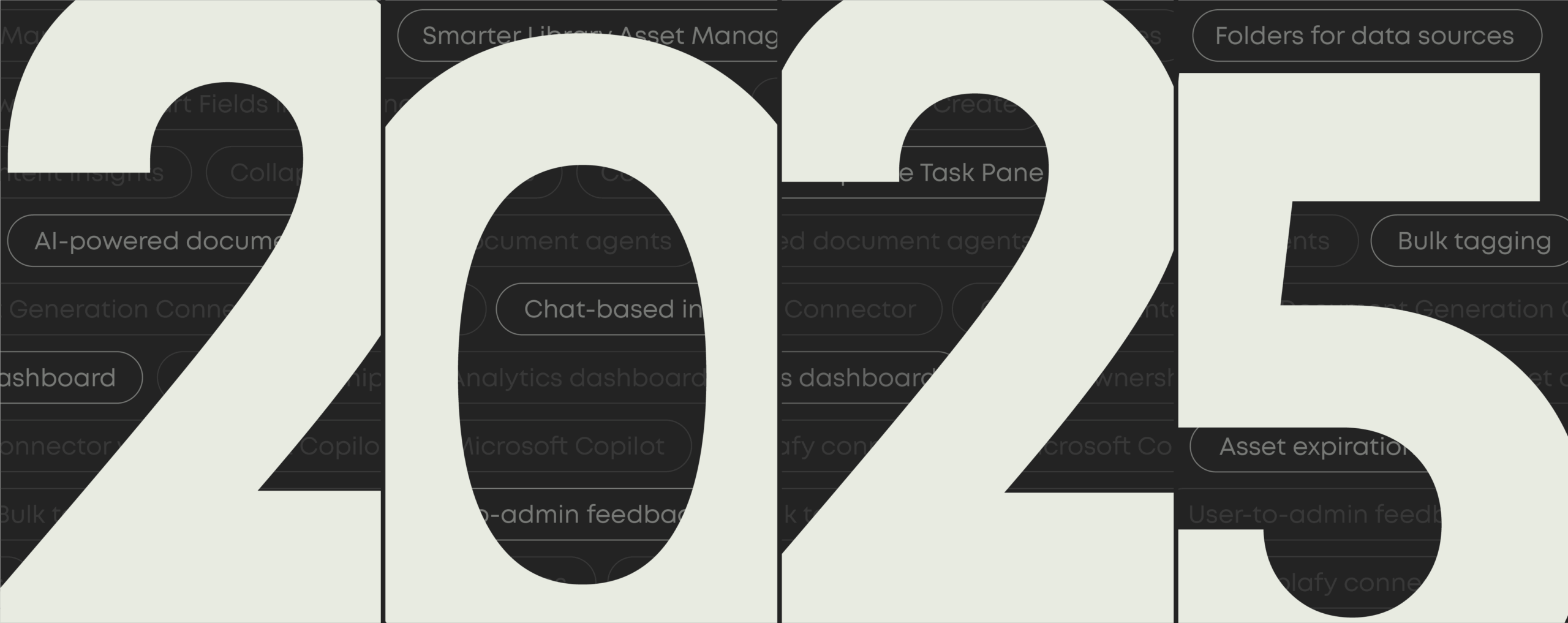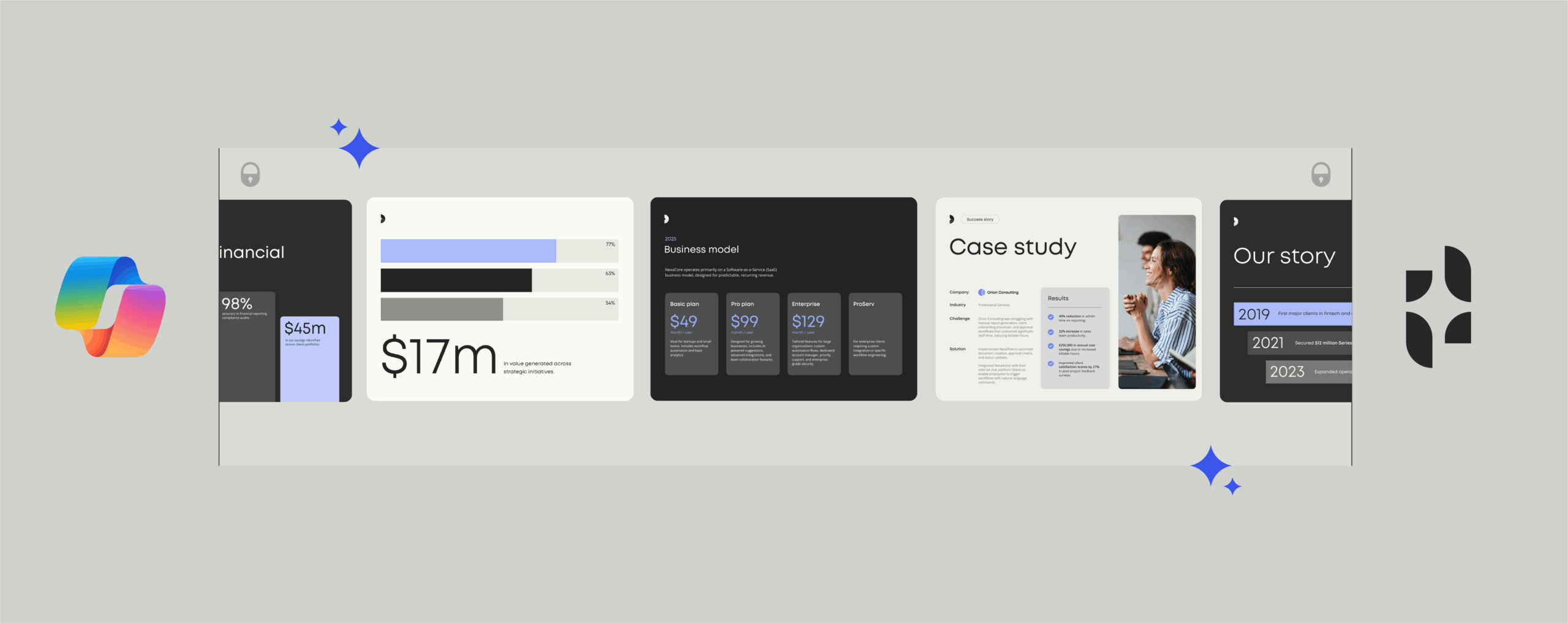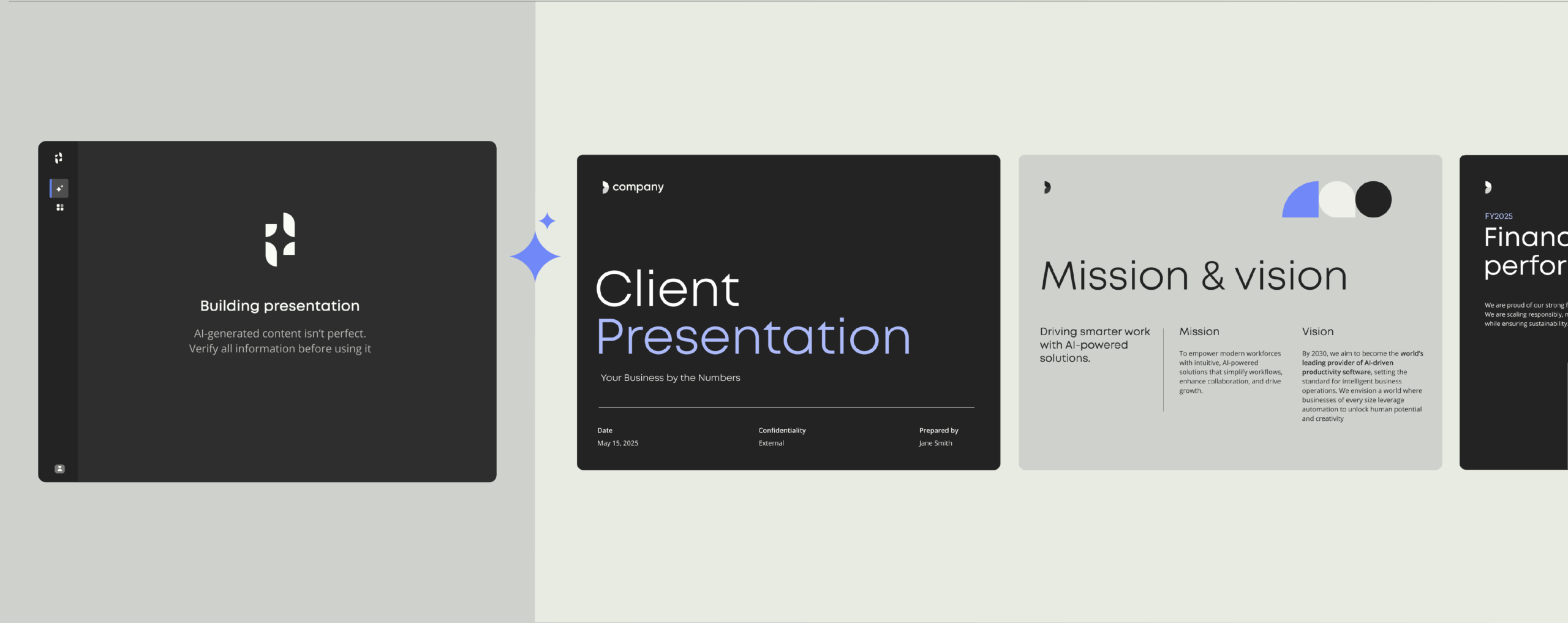Templafy’s AI Text Assistant: Generative AI for compliance-minded enterprises
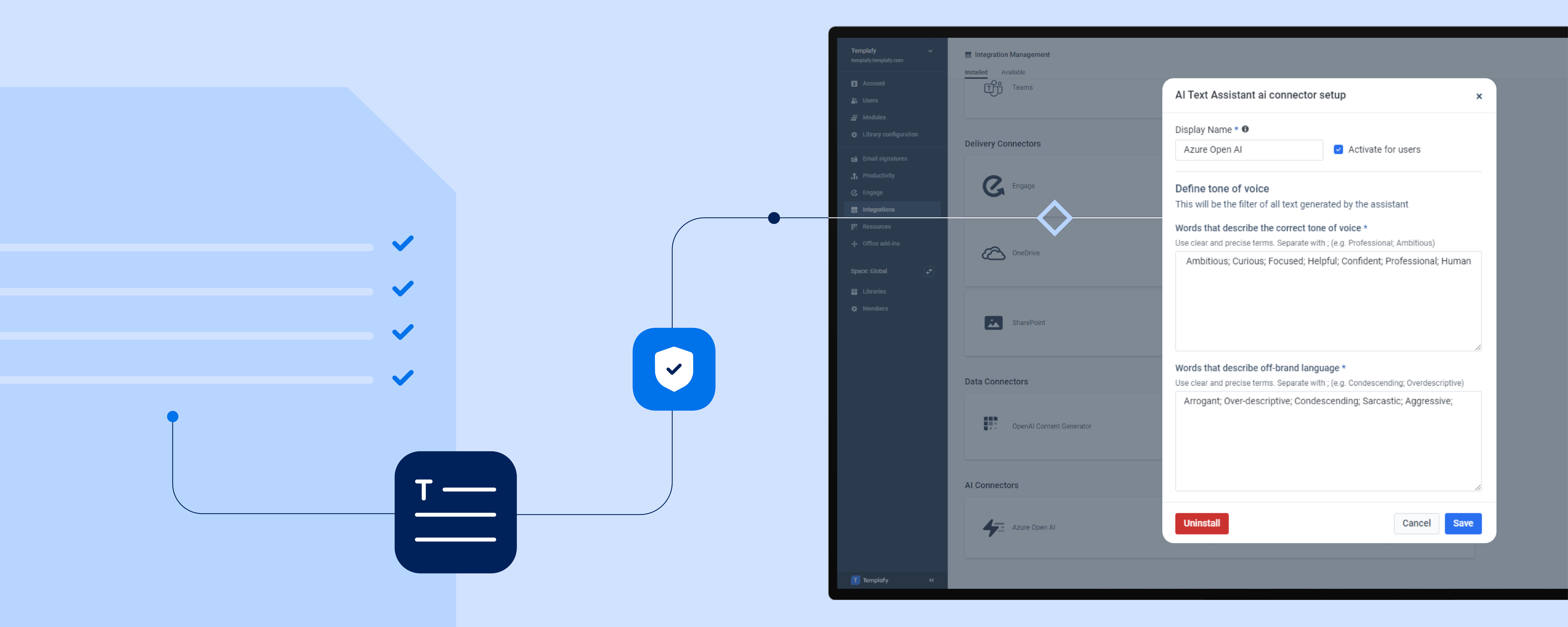
As security-focused companies ban tools like ChatGPT, Templafy’s new AI text assistant feature offers a new way for enterprises to benefit from the efficiency gains of Generative AI without sacrificing security.
With generative AI tools like ChatGPT gaining massive popularity and expanding in functionality, it’s natural that employees across all industries are interested in using them at work. But like many novel technologies, the impact and security of these tools is relatively unknown.
98% of global executives may agree that AI tools will play a significant role in their corporate strategies over the next three to five years, but that hasn’t stopped 80% of enterprise companies from implementing restrictions on AI content creation.
In some ways this makes sense: a recent survey found that of the 43% of workers who use AI tools, almost 70% of them do not disclose the use of those tools in their work.
So where is the disconnect between the potential for generative AI in the workplace and its official welcome?
It really comes down to three criteria: security, flexibility, and workflow integration.
How it works: AI as an integrated component of document creation
Templafy’s new AI text assistant feature (see press release) — now available to customers in Beta — bridges the gap between third-party AI tools and enterprise-friendly tech stacks.
Powered by Azure OpenAI-technology, the text assistant works within the platforms and programs that employees already use daily, like the Microsoft Office suite. As an integrated part of the Templafy Library, it can be used either to improve content being created by employees or as a means to generate original content.
At the same time, Admins gain the ability to manage guidelines for tone of voice and brand consistency centrally, ensuring that the text assistant tool is suggesting and checking for compliant language in line with company standards.
At the same time, Admins gain the ability to manage guidelines for tone of voice and brand consistency centrally, ensuring that the text assistant tool is suggesting and checking for compliant language in line with company standards.
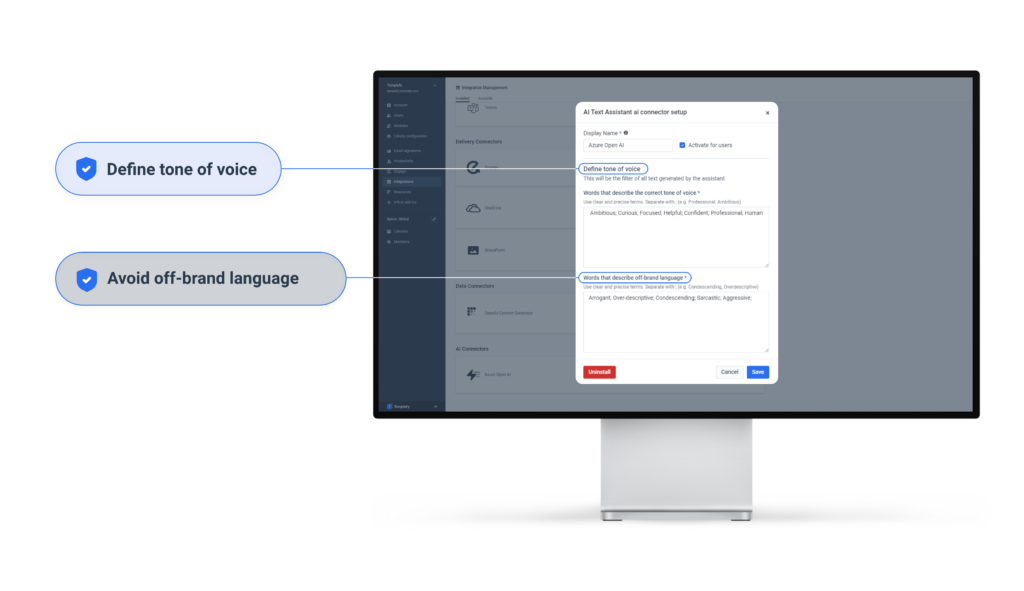
Solving for security: how Templafy protects data privacy
The biggest challenge when finding use cases for generative AI at work is data security.
For example, according to OpenAI’s terms of service, privacy cannot be guaranteed during interactions with the chatbot, and users are warned that the responsibility lies with them to prevent any disclosure of sensitive information.
Some companies have discovered this the hard way. At Samsung, within weeks after greenlighting the use of ChatGPT at work, three different company engineers had shared what appeared to be sensitive corporate data with the chatbot. Within the financial industry, ChatGPT has been officially blocked by Bank of America, JPMorgan, Goldman Sachs, and many more.
Templafy solves this by making use of the Azure OpenAI database, ensuring that none of the input or generated output is stored or utilized for model training. In other words: none of the text that is entered by employees or suggested by the text assistant is fed back to or shared with the algorithm. This enables enterprises to uphold international data security standards, such as GDPR and CCPA, while safeguarding their intellectual property.
Templafy’s AI Assistant
Unlock the power of AI without the risks
This is just the beginning: AI for corporate governance
The Templafy text assistant is designed to provide a means for enterprises to take advantage of generative AI, but the next phases will be much further reaching. As a component of a greater document generation platform like Templafy, companies can use AI to design and enforce an additional layer of corporate governance.
By centrally managing tone of voice and developing a consistent method for reviewing and proofreading documents, corporate content and communication will become more consistently high quality while requiring less effort from individual contributors.
Jesper Theill Eriksen, CEO at Templafy put it best: “The true potential of generative AI is undoubtedly vast yet unknown, and businesses should, in a responsible way, begin exploring how to take advantage of it.”
For more information
Watch our on-demand webinar which includes both an interactive discussion on the risks and rewards of generative AI in a corporate environment as well as a product demo of Templafy’s AI text assistant in action.

